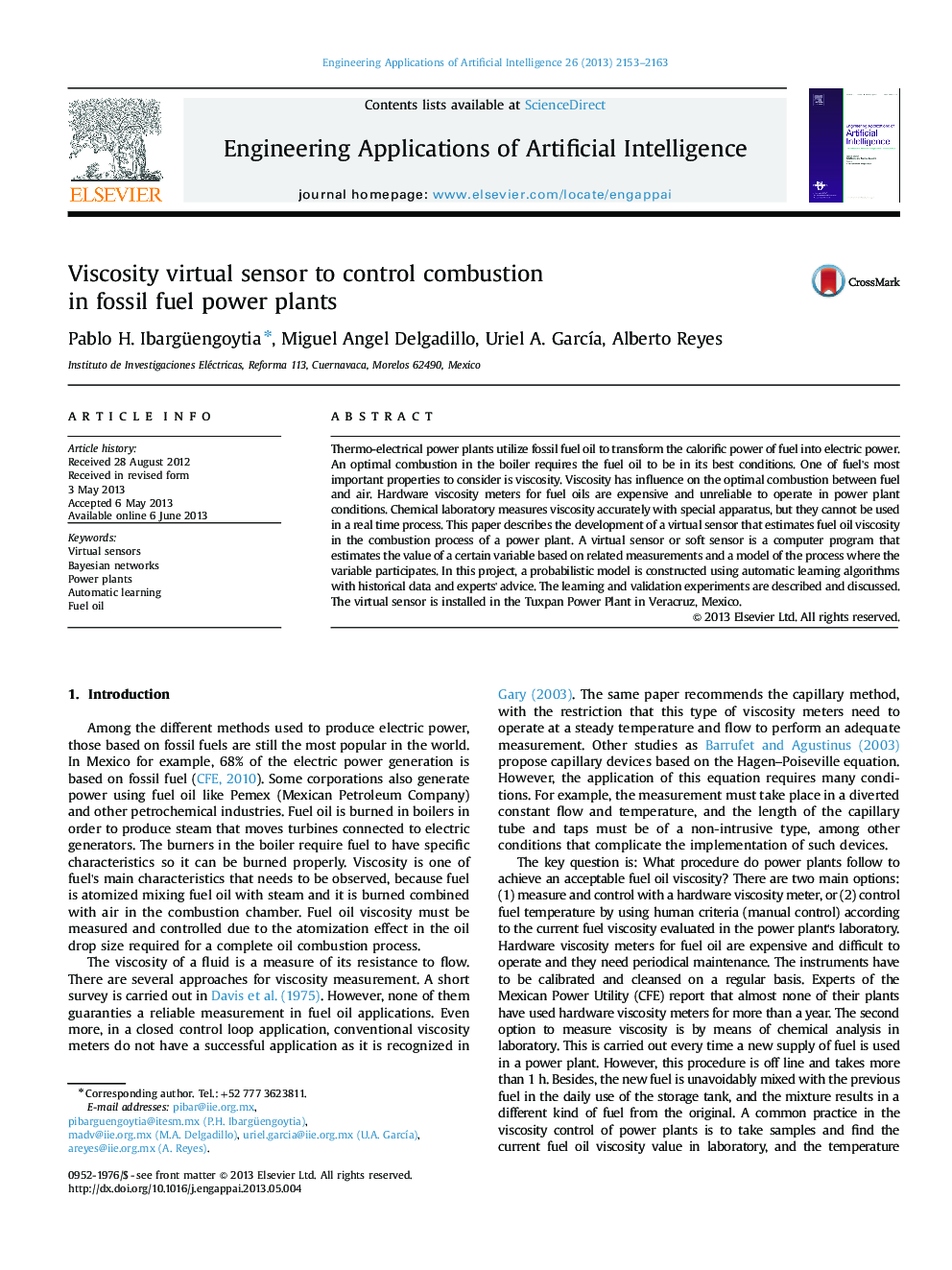| Article ID | Journal | Published Year | Pages | File Type |
|---|---|---|---|---|
| 380756 | Engineering Applications of Artificial Intelligence | 2013 | 11 Pages |
•We tackle a real problem in the fossil fuel power plants.•We utilize Bayesian networks to estimate the fuel oil viscosity using related variables as evidence.•We learned the models using historical data and expert advice.•We describe the experiments conducted and the results obtained.•We validated the model using real data. In-site tests are in progress.
Thermo-electrical power plants utilize fossil fuel oil to transform the calorific power of fuel into electric power. An optimal combustion in the boiler requires the fuel oil to be in its best conditions. One of fuel's most important properties to consider is viscosity. Viscosity has influence on the optimal combustion between fuel and air. Hardware viscosity meters for fuel oils are expensive and unreliable to operate in power plant conditions. Chemical laboratory measures viscosity accurately with special apparatus, but they cannot be used in a real time process. This paper describes the development of a virtual sensor that estimates fuel oil viscosity in the combustion process of a power plant. A virtual sensor or soft sensor is a computer program that estimates the value of a certain variable based on related measurements and a model of the process where the variable participates. In this project, a probabilistic model is constructed using automatic learning algorithms with historical data and experts' advice. The learning and validation experiments are described and discussed. The virtual sensor is installed in the Tuxpan Power Plant in Veracruz, Mexico.
